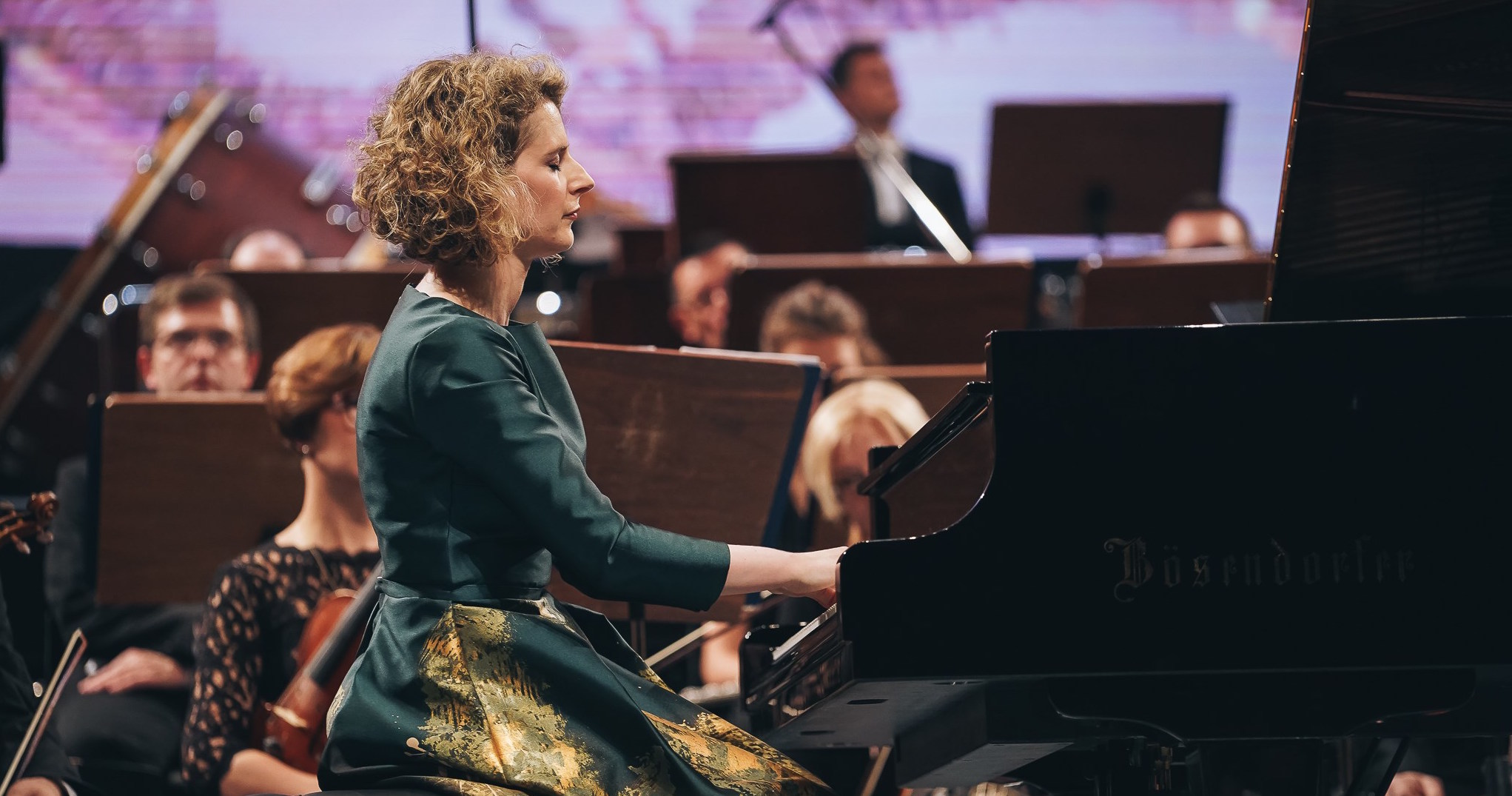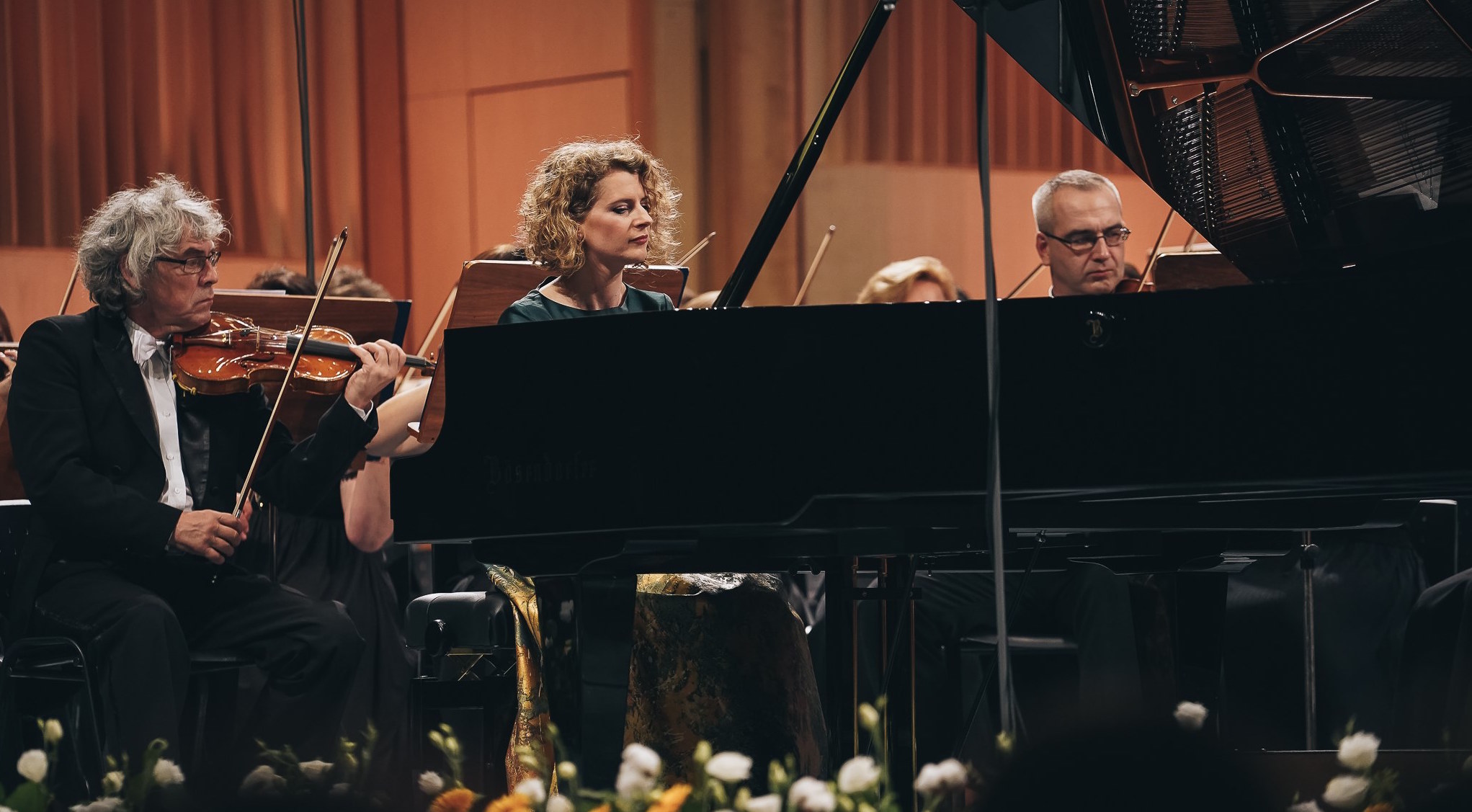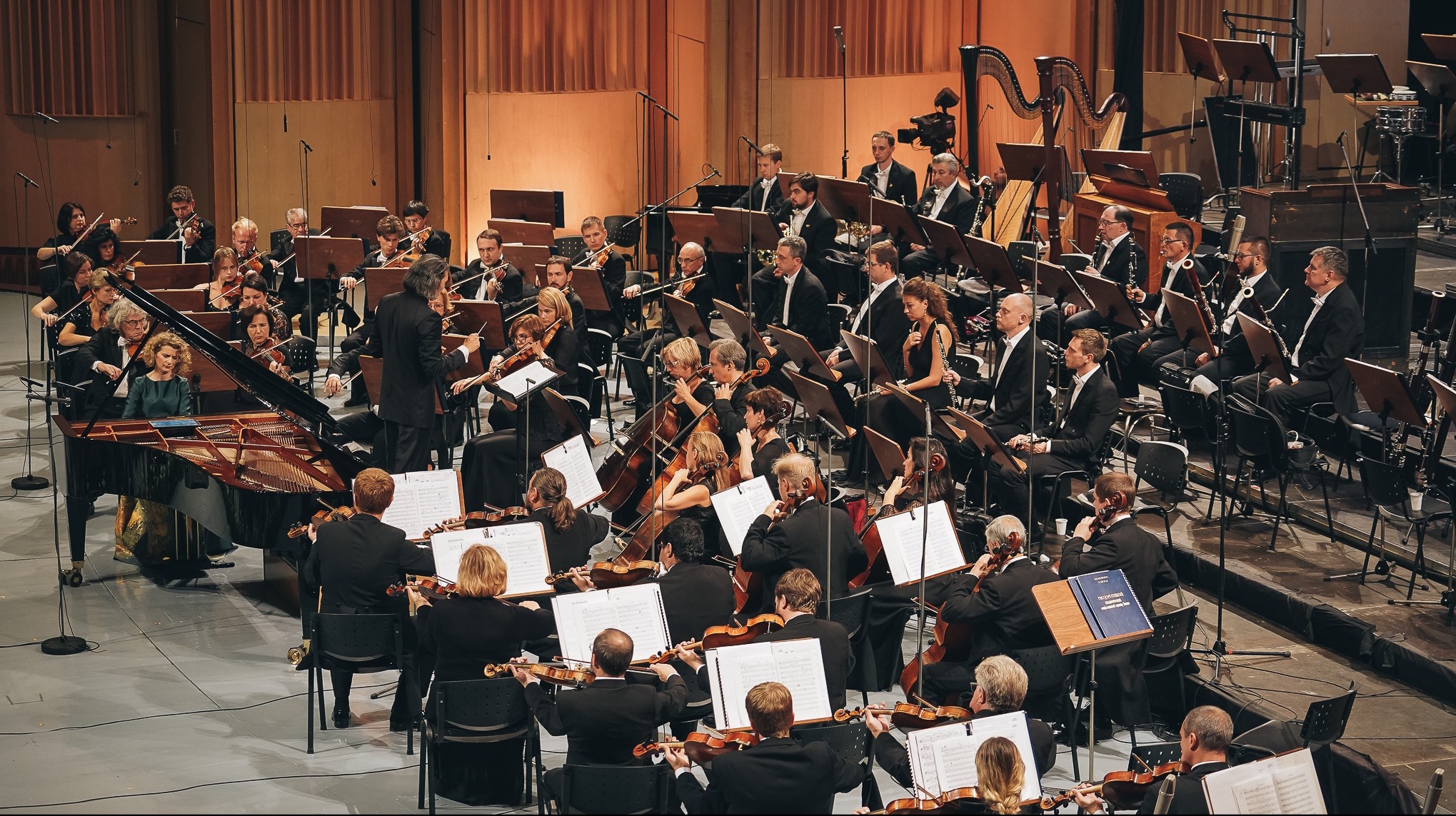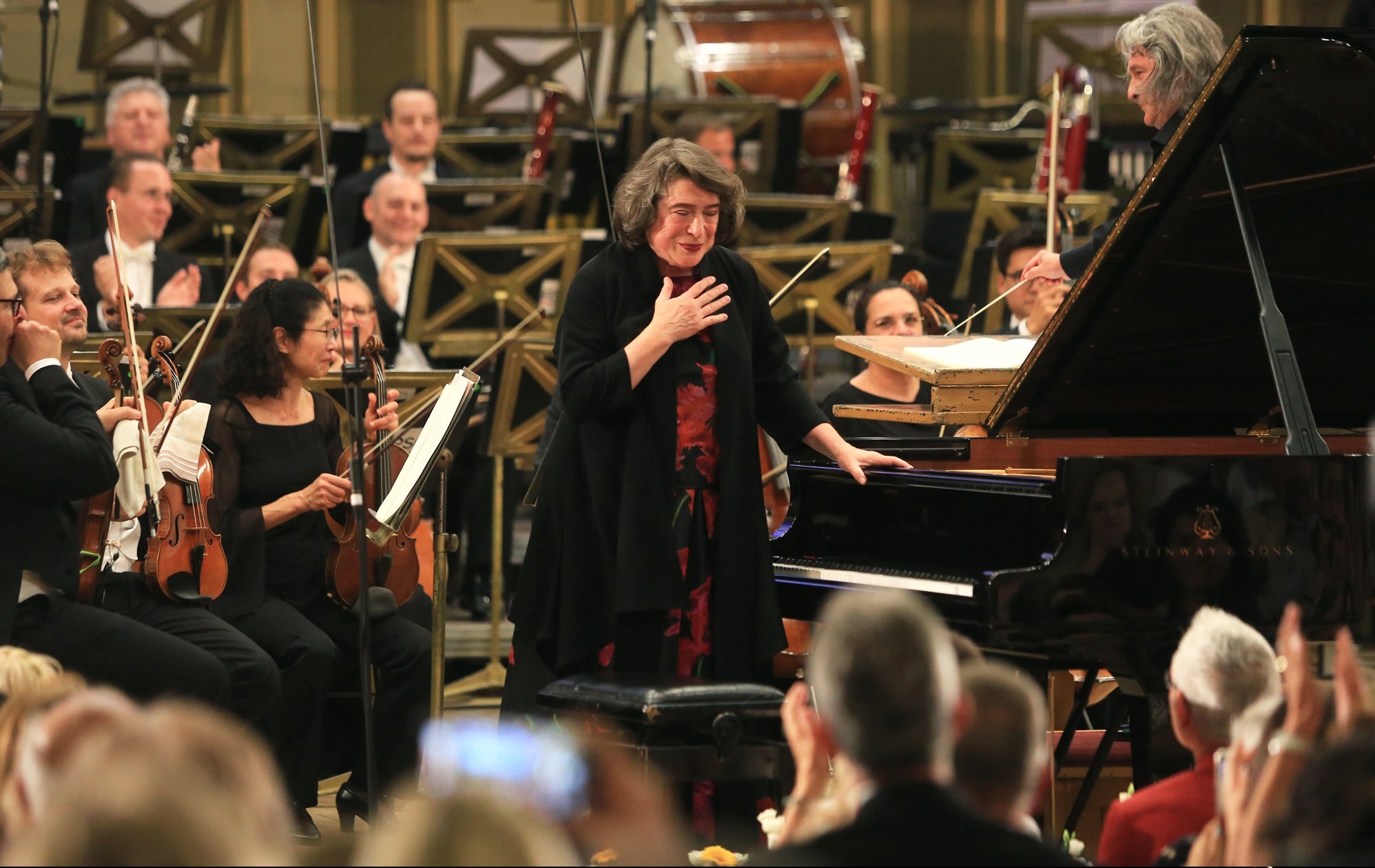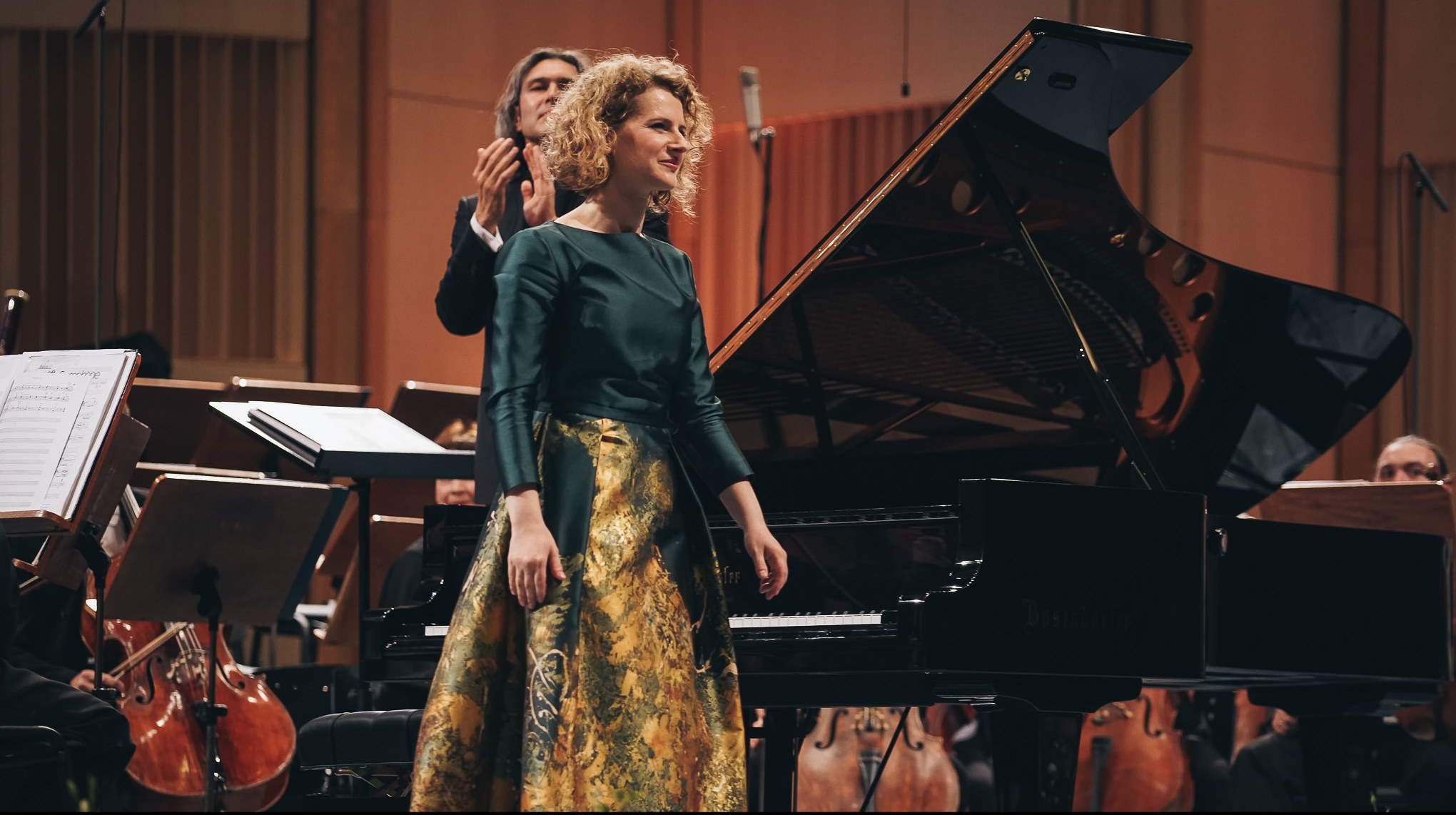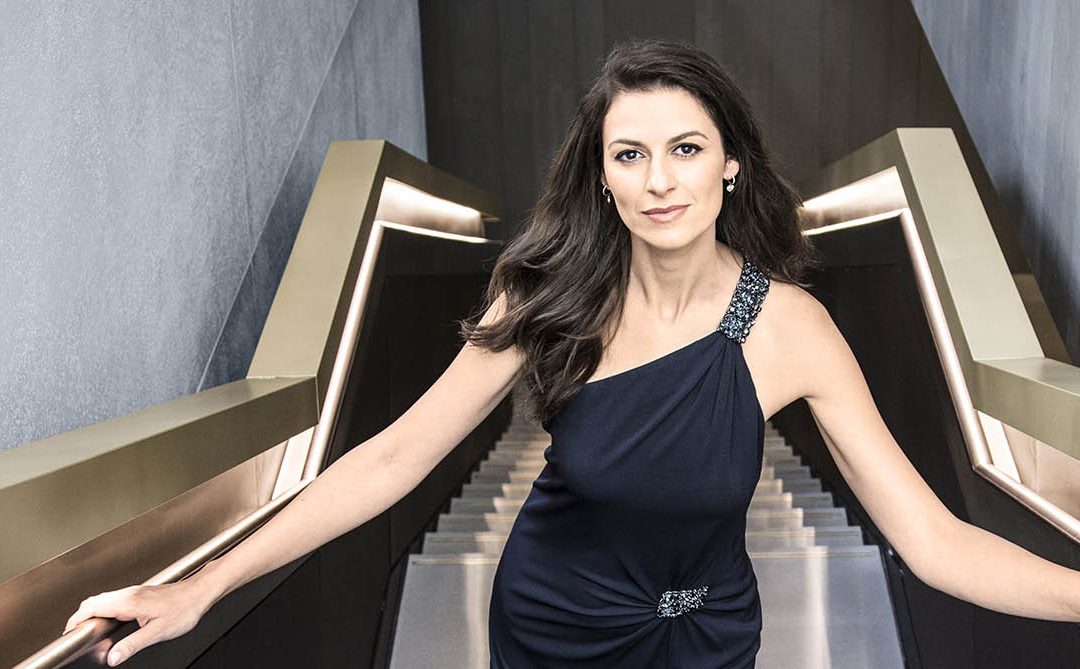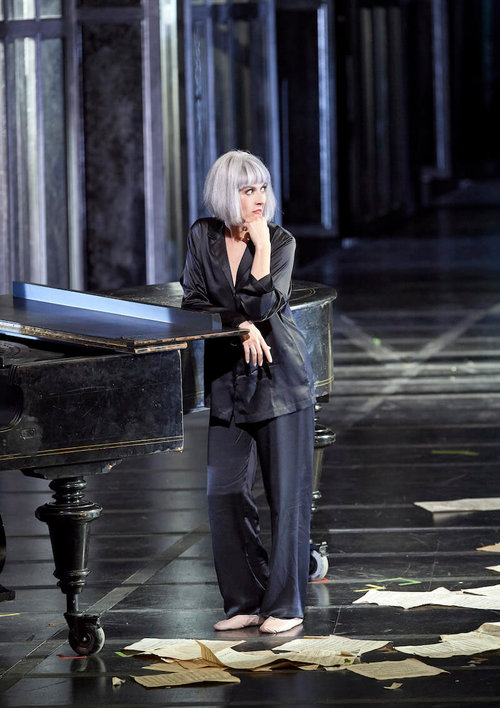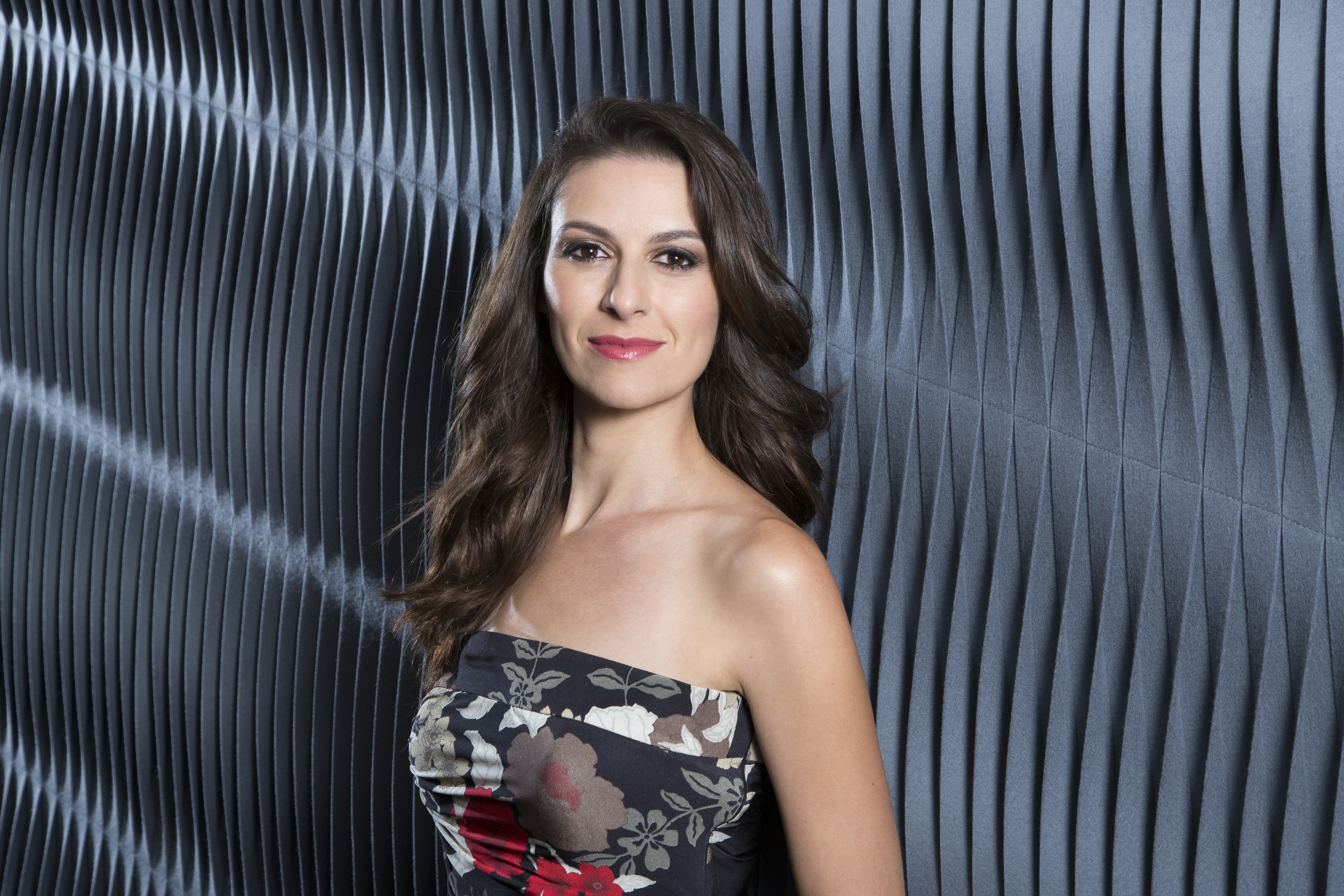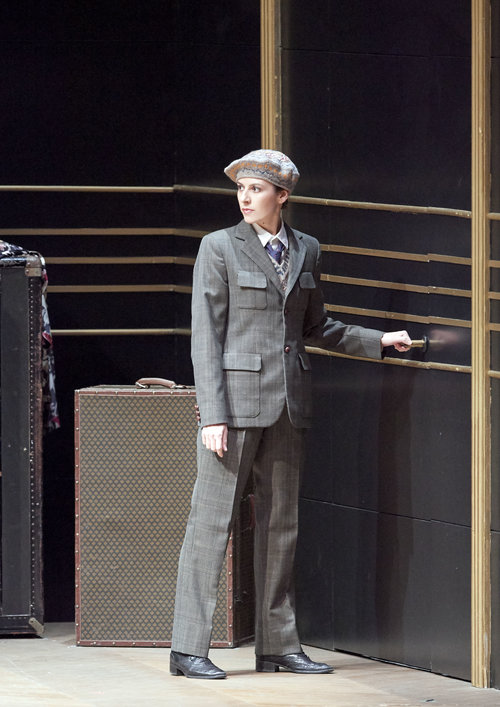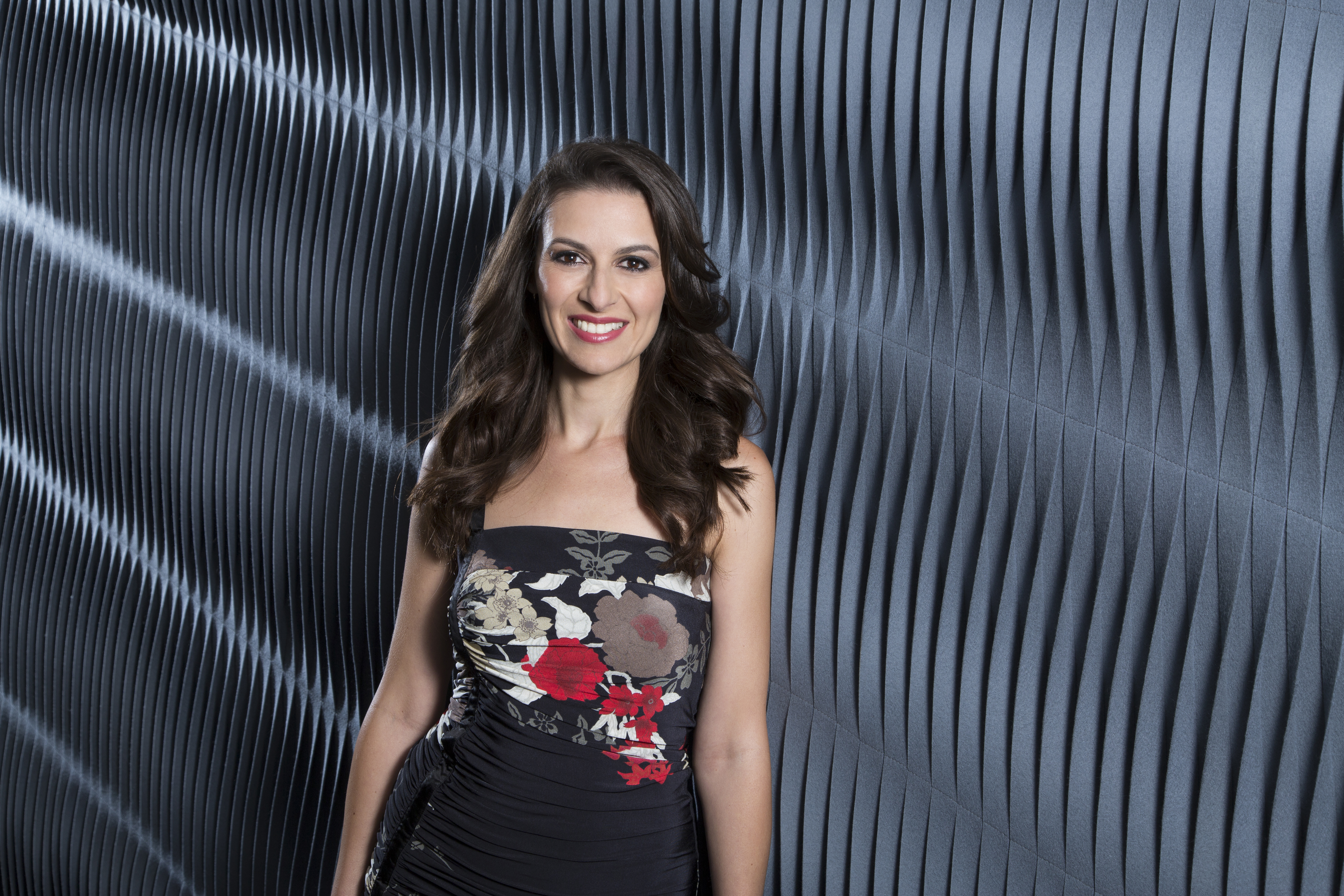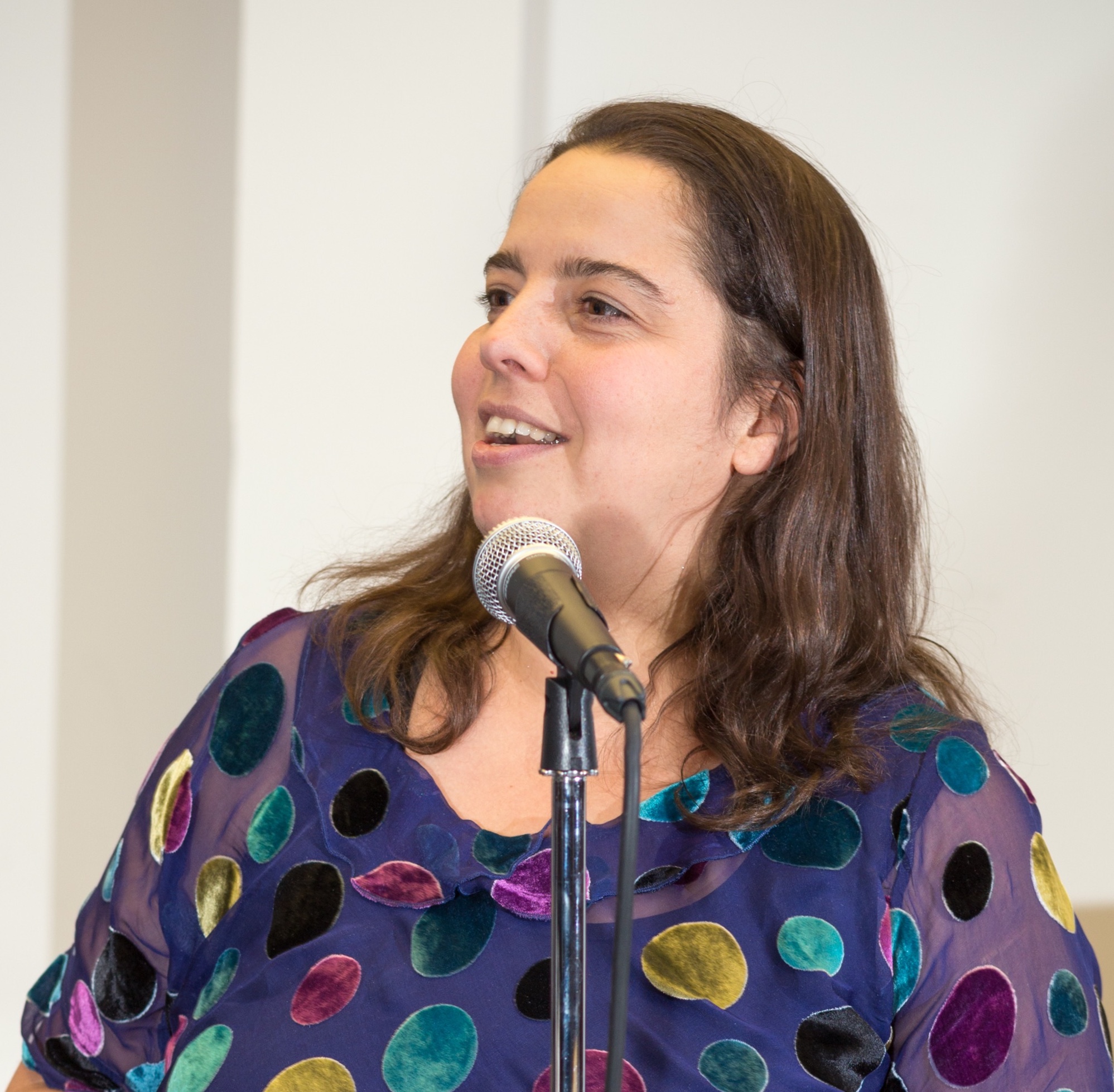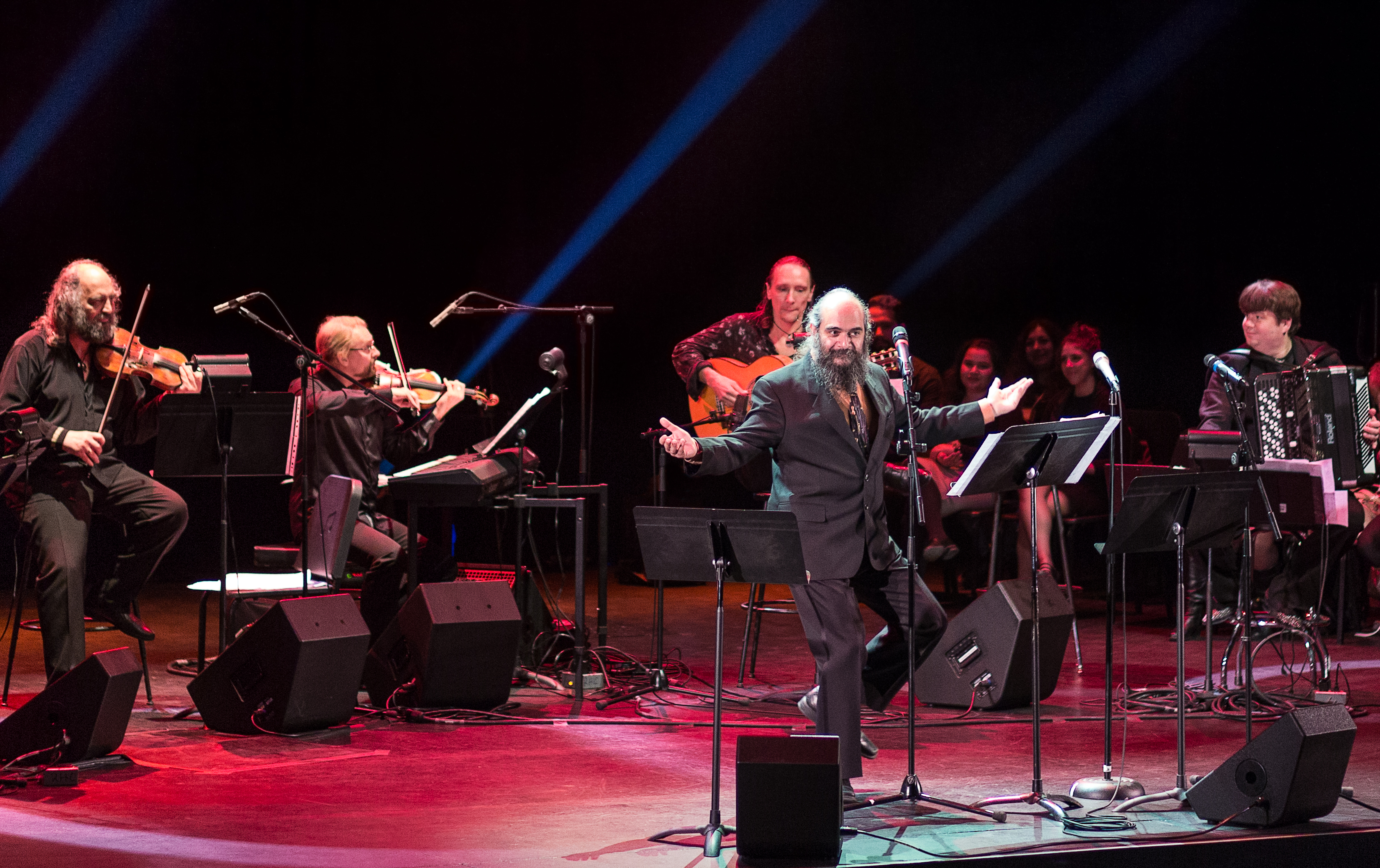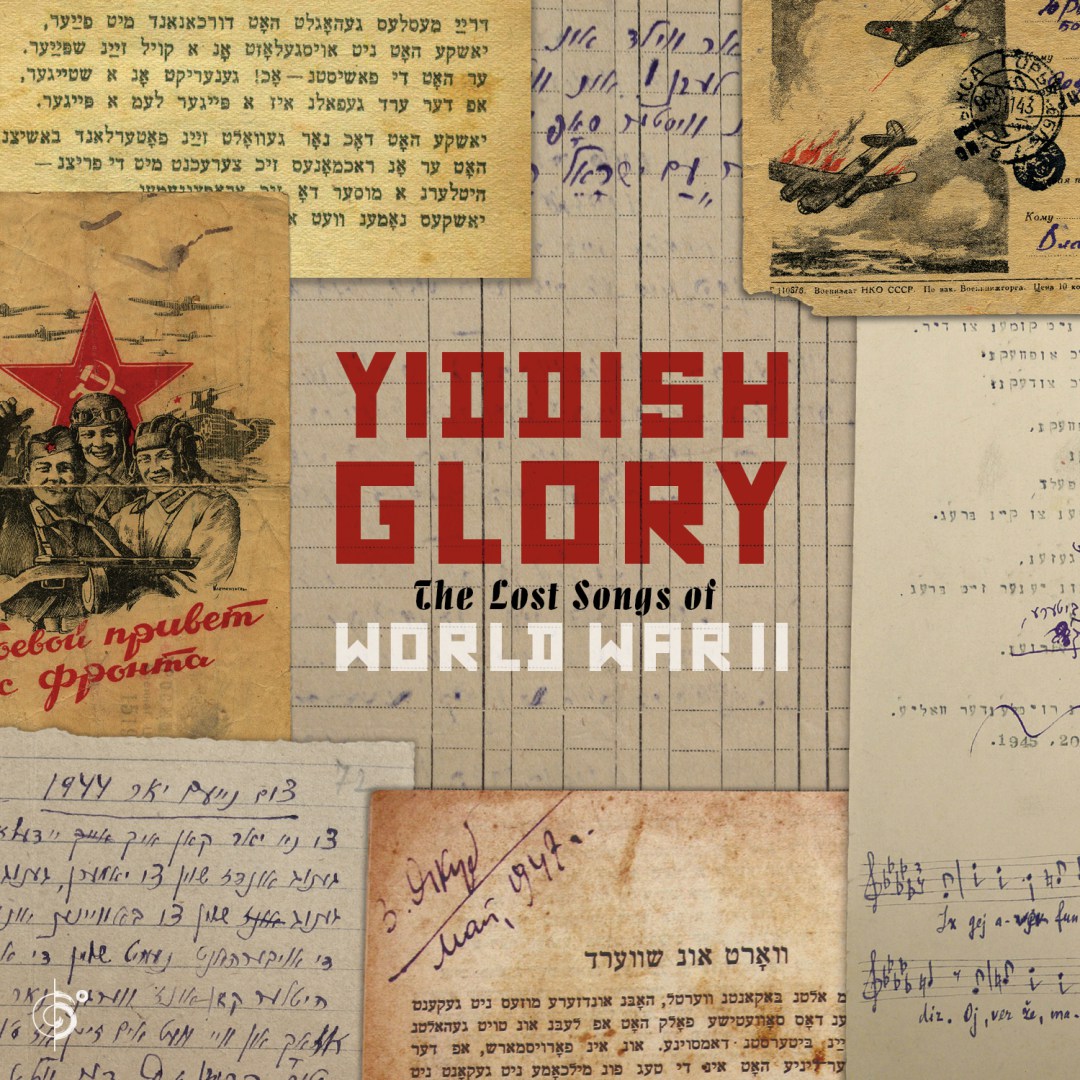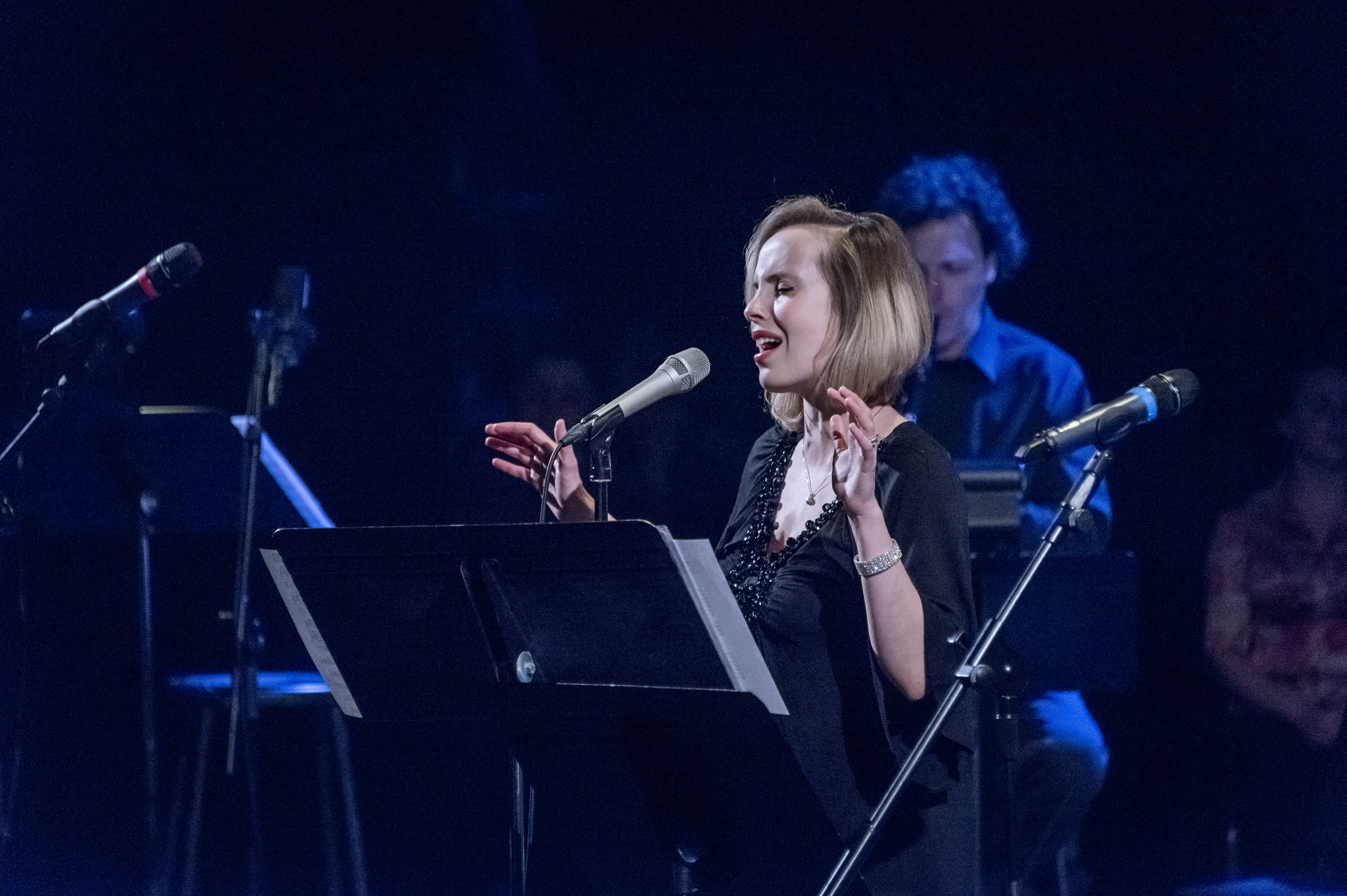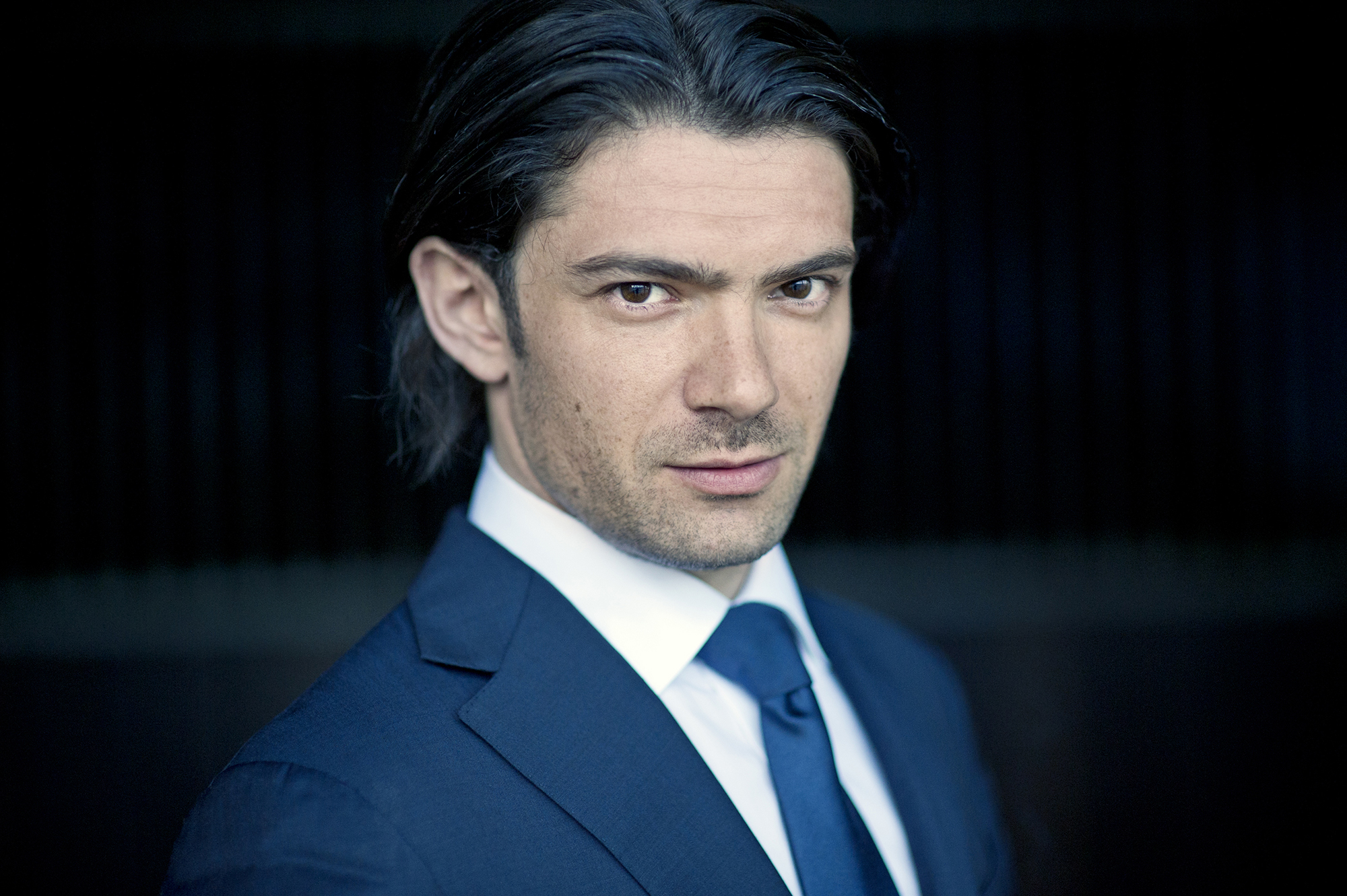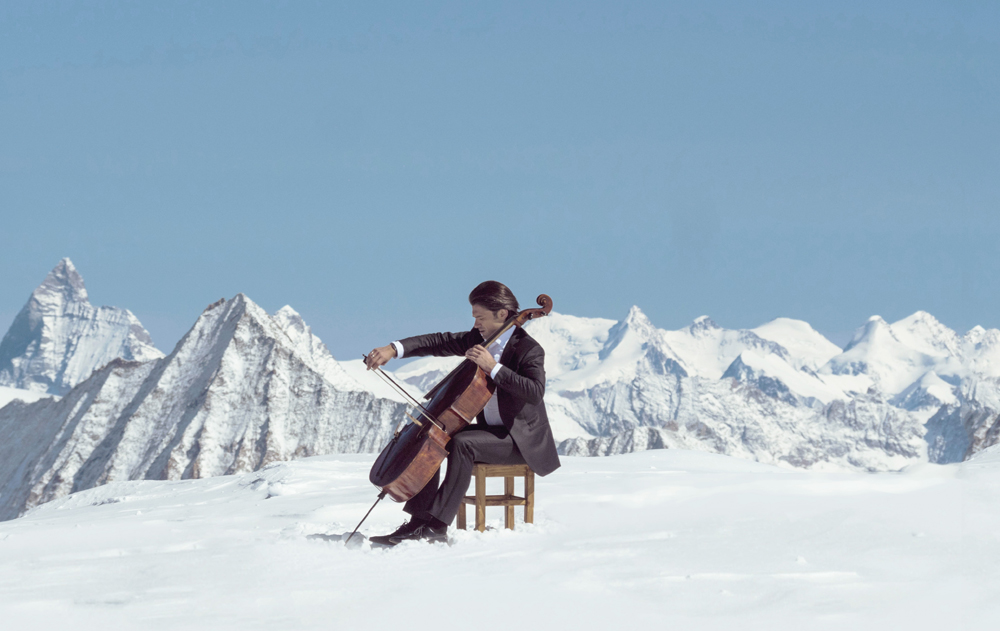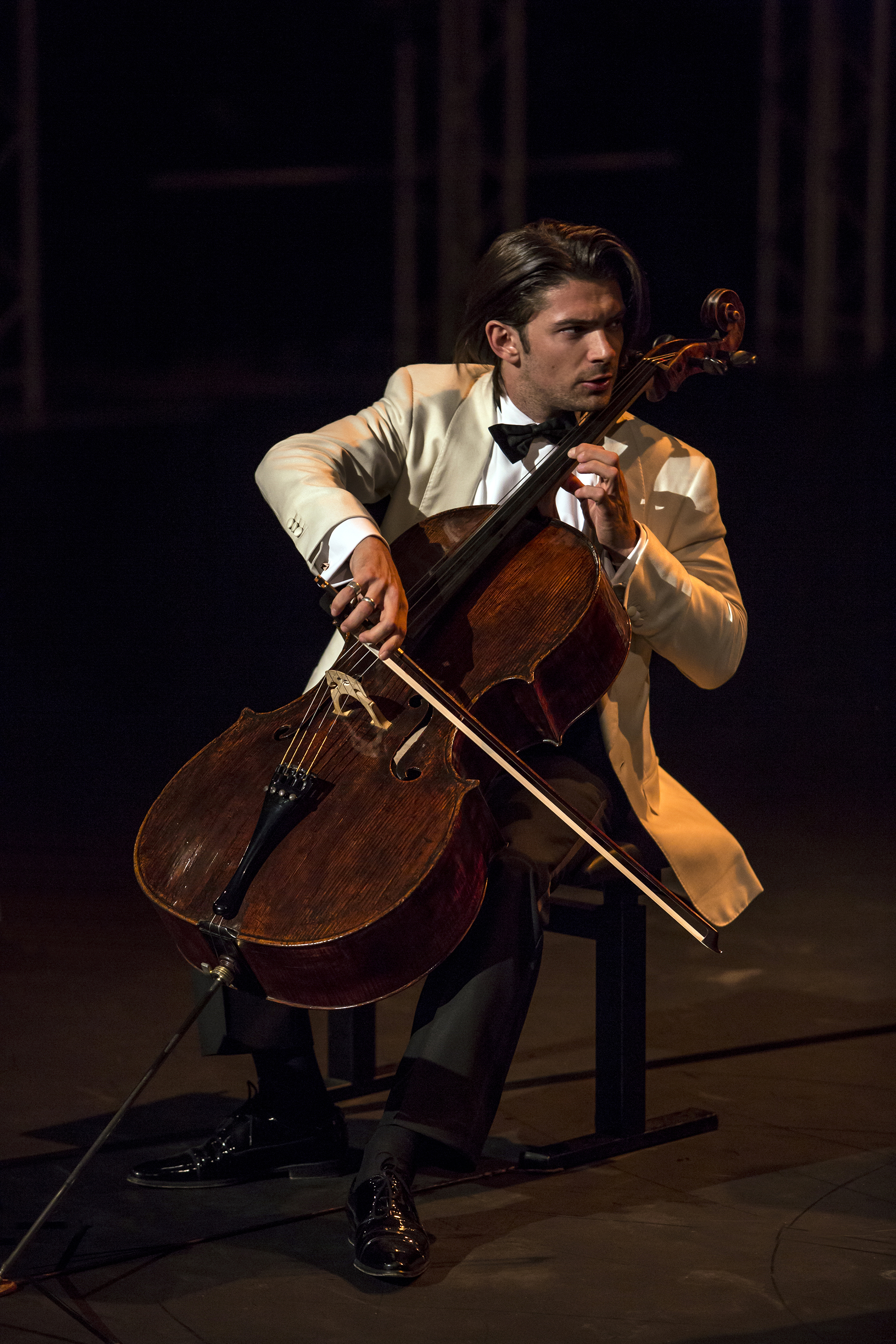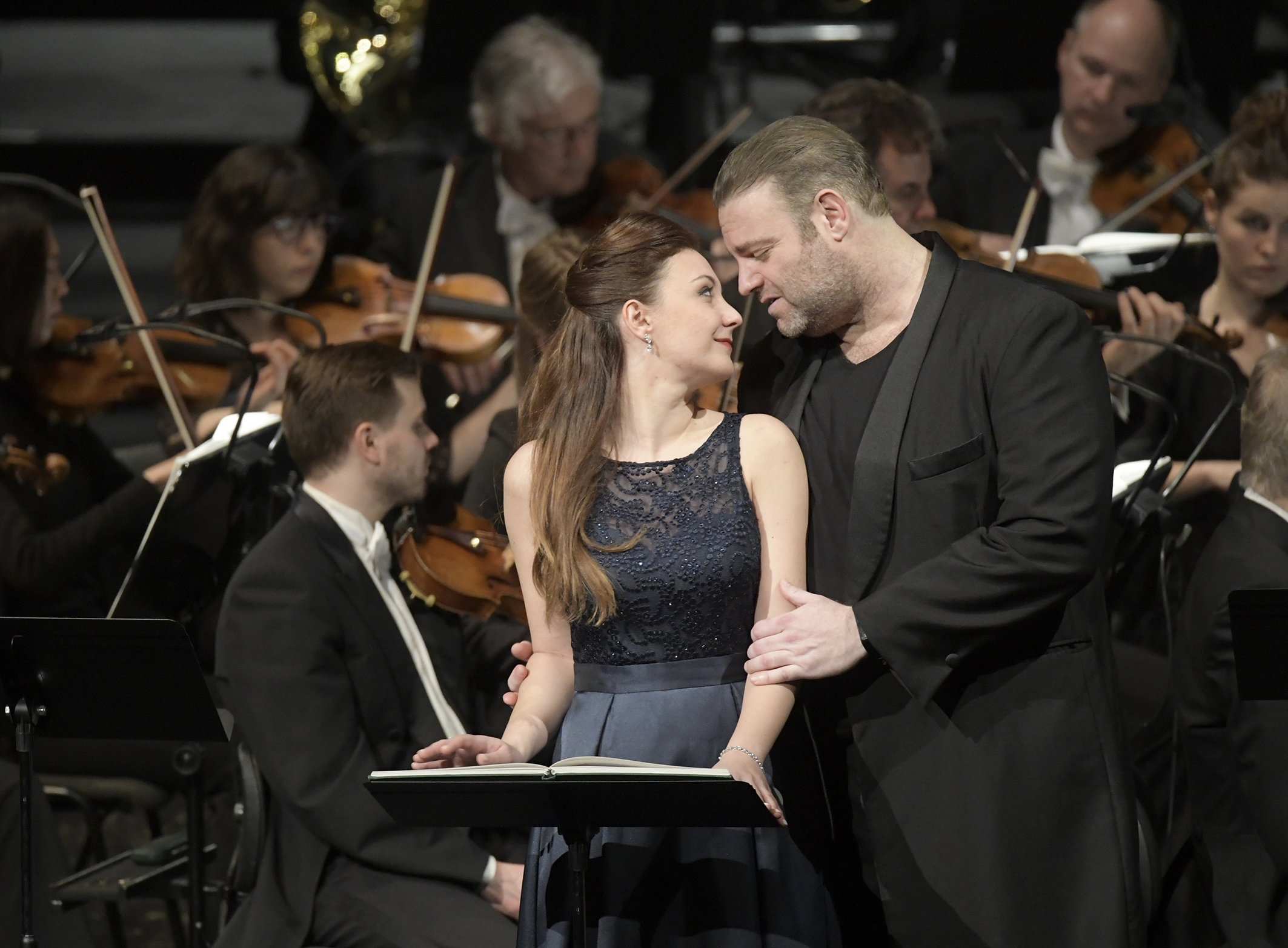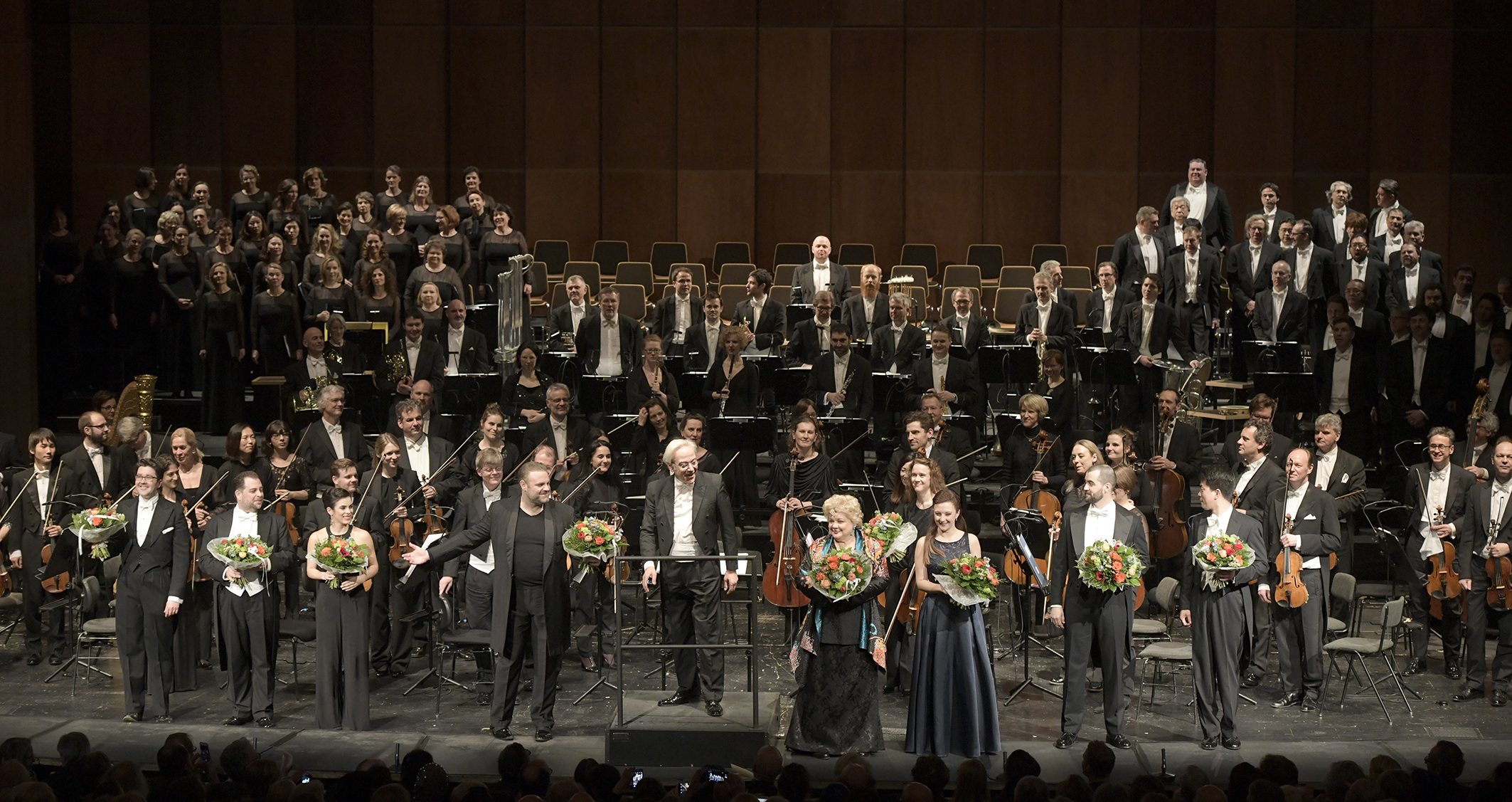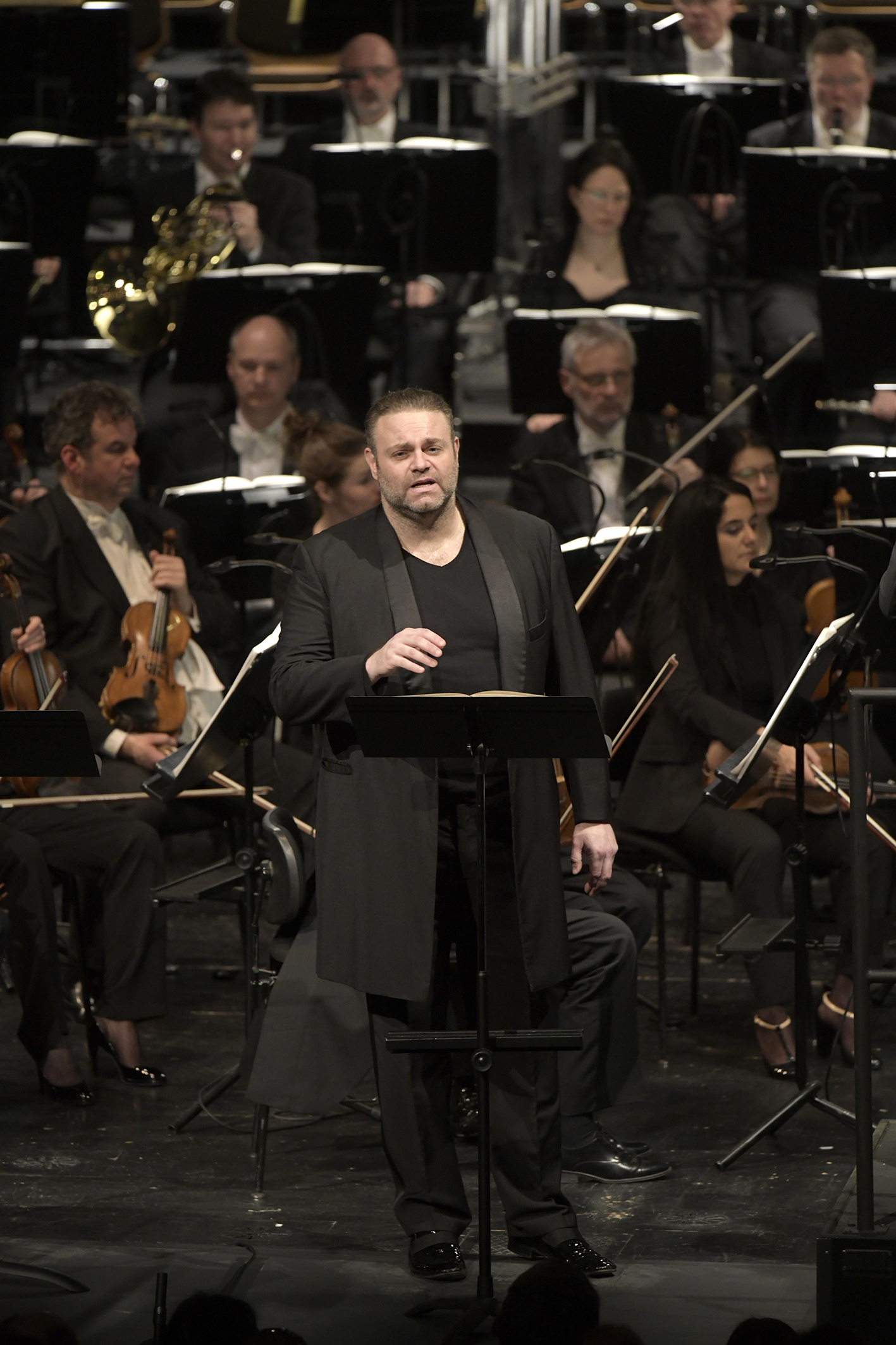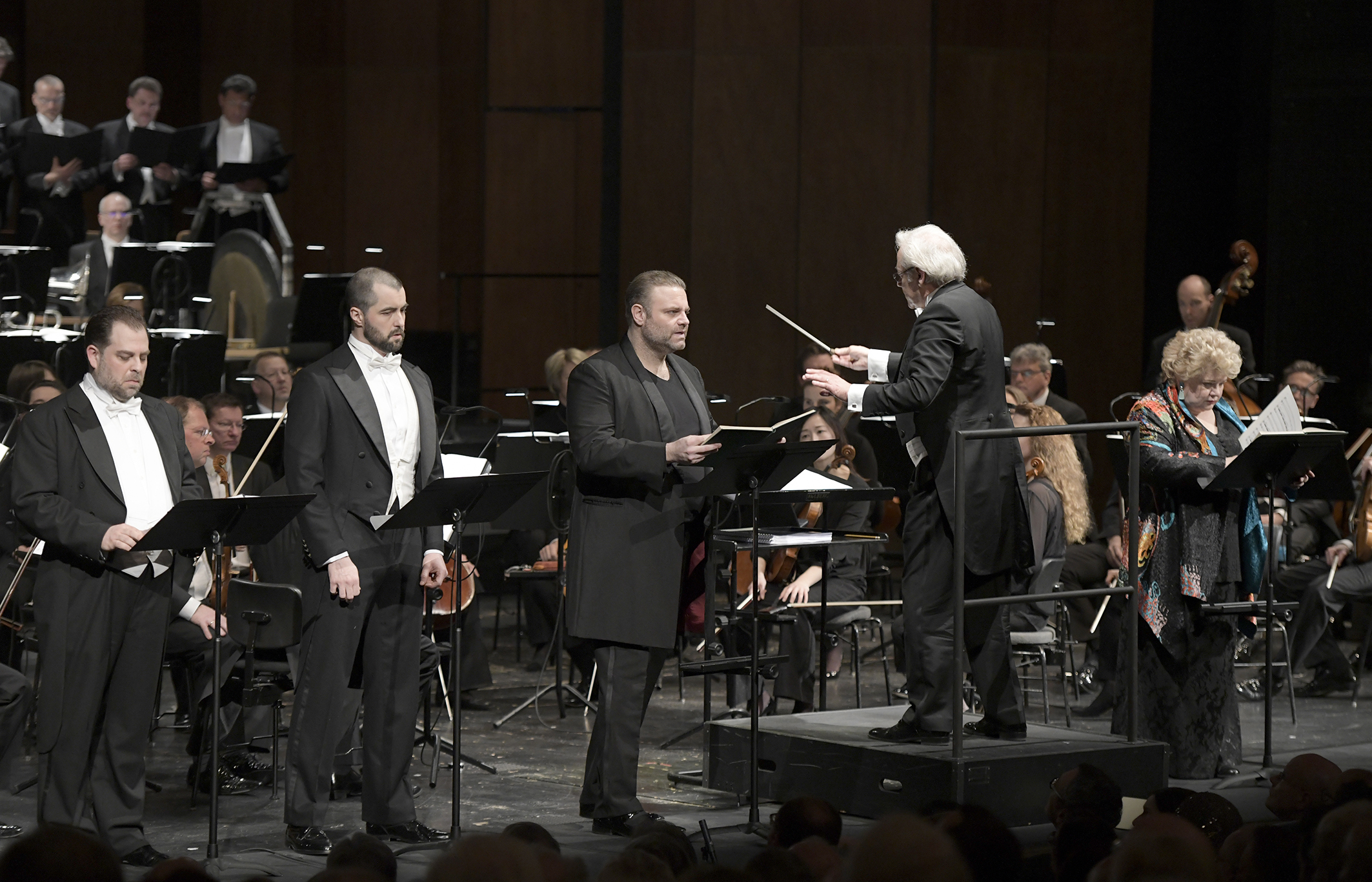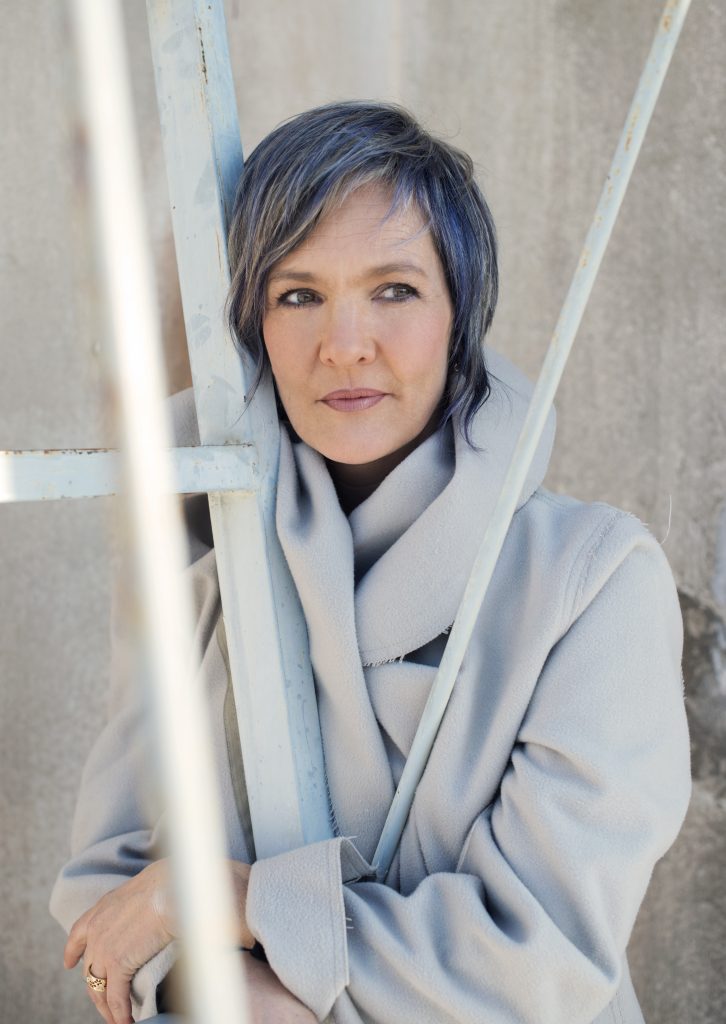
Photo © Yiorgos Mavropoulos
Trying to get a handle of the scope of Petersen’s creative activities is close to impossible.
Yes, the celebrated German soprano does the so-called “classic” opera repertoire (Verdi, Massenet, Handel, Donizetti), operetta (Lehar), contemporary (Widmann, Reimann, Henze), and has performed at some of the world’s most prestigious houses, including the Wiener Staatsoper, Royal Opera Covent Garden, Opera de Paris, and Bayerische Staatsoper. She is one of the most celebrated interpreters of twentieth century works, with Berg’s Lulu being arguably her most famous role; she’s performed in ten different productions, in a variety of locales (Munich, Düsseldorf, Hamburg, Vienna, Athens, New York), and retired the role in 2015, telling The New Yorker:
This character leaves a shadow on your soul. It is not that I play her. I have to be her, and that is a very demanding thing. I thought, after all these years it is time for me, as a woman, to let go. She rules me in a way. It is not that I am Lulu, but she is demanding. And how you act with men sometimes—is a little bit influenced by this. I have decided to let this go, and to see who, actually, Marlis Petersen is.
Petersen started out studying piano and won several competitions; from there she moved on to flute, and, as a teenager, found her voice, quite literally, in the church choir. She was given a solo by the choir director at seventeen, and the rest, as they say, is history. Along with music, Petersen made a point of studying dance, and brings a loose-limbed if varied gestural style to both her vocal style and her stage performances. This awareness of movement, in literal and figurative senses, and its seamless integration within a live setting has highlighted her agile vocality, one that can flip from warm wool to cold steel in an instant.
But Petersen is also what might be called a restless spirit, greatly interested in the peaks and valleys beyond the limits of traditional presentation, whether on the opera stage, in recital, or on recordings. Her vocal range has been highlighted through her impressive discography, with recordings of operas and oratorios by Mozart, Bach, Mendelssohn, and Haydn (including a gorgeous rendering of Haydn’s Die Jahreszeiten from 2004, featuring the Freiburger Barockorchester and RIAS Kammerchor and led by René Jacobs), as well as a range of albums devoted to lieder, featuring works by Schumann, Brahms, and Walter Braunfel. She’s also done an album of works inspired by the writings of Goethe. (His writings, and their connection to music, is part of a broader topic I’ll be exploring in a future post.) it’s hardly a revelation to state that creative exploration sits at the heart of Petersen’s identity as an artist.
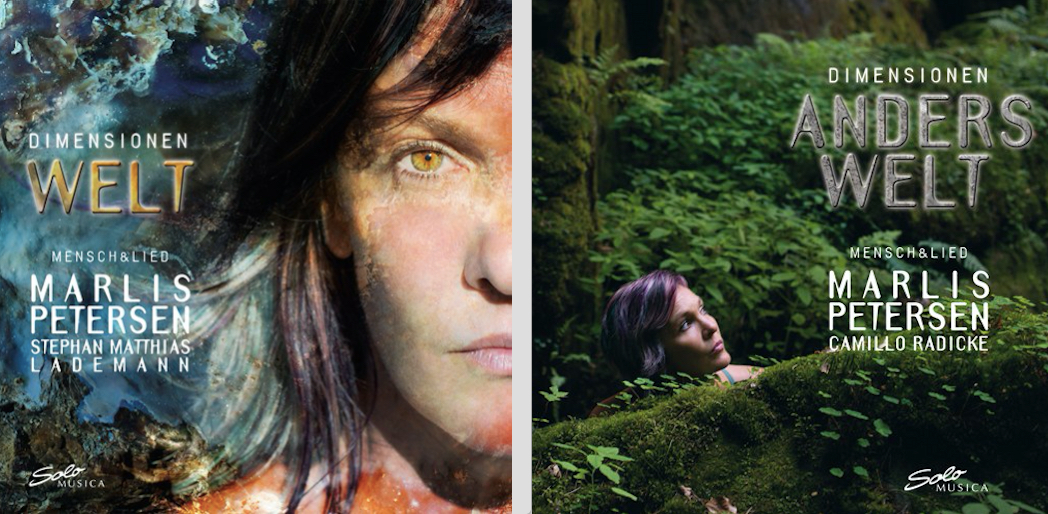
via Solo Musica
That exploratory spirit is given clear expression in her series of Dimensionen albums (Solo Musica). Welt (World, 2o17), Anders Welt (Other World, 2018), and Innen Welt (Inner World, 2019). The trilogy showcases the soprano’s incredible gift for the art of song;, her range and dynamism underline a deep and captivating theatricality which runs, vein-like, throughout her considerable body of work. The songs featured on the albums move between well-known works and lesser-known pieces by composers including Schubert, Brahms, Schumann, Wagner, Max Reger, Carl Loewe, Sigurd von Koch and Hans Sommer and show Petersen’s appreciation of the nature of text, sound, performance, and atmosphere, and the spiritual (dare I say mystical) ties that bind them. Last month, following a recital of works from Innen Welt, the Berliner Morgenpost observed that the singer had “kidnapped her audience into the world of elves and mermaids.” The album redirects one’s attentions (perhaps energies is a better world) to an entirely different realm; if elves and mermaids happen to be there, then so too, do a host of other, mythical creatures – and correspondingly, some very real feelings – conjured by the audience’s unique imaginings and experiences. Petersen has a unique gift for speaking to listeners on a very individual and sometimes quite personal level, using her voice and interactions with her accompanists (Stephan Matthias Lademann and Camillo Radicke) to create aural tapestries of the most beautiful and beguiling designs. The trilogy, and Innen Welt in particular, is a sumptuous, intriguing showcase of that rare gift.
The soprano is currently in Munich in a revival of Krzysztof Warlikowski’s eye-catching production of Strauss’s Salome, conducted by Kirill Petrenko, with whom she’s worked many times – including, notably, last fall, when, as Artist in Residence for the current season of Berlin Philharmonic, she was part of the orchestra’s opening concerts which marked Petrenko’s start as their chief conductor. Within the position, Petersen performs a variety of concerts, including ones next year, with the Karajan Academy of the Berlin Philharmonic (in May), and with members of the orchestra (in June). She’s also scheduled to perform with the New York-based experimental chamber group Sirius Quartet, with whom she has previously collaborated and will be part of concert performances (in Munich and then Tokyo) of Jörg Widmann’s Arche, a work which was premiered as part of the opening of the Elbphilharmonie in Hamburg in early 2017, in which Petersen also performed. She is giving recitals of Inner Welt in Germany and Spain in June.
Far sooner, however, is Petersen’s continued work with Kirill Petrenko. The two are set to work together again next month for Die Tote Stadt, the first new production of the Bayerische Staatsoper season. We shared a wide-ranging chat recently as she prepared for her autumn engagements.
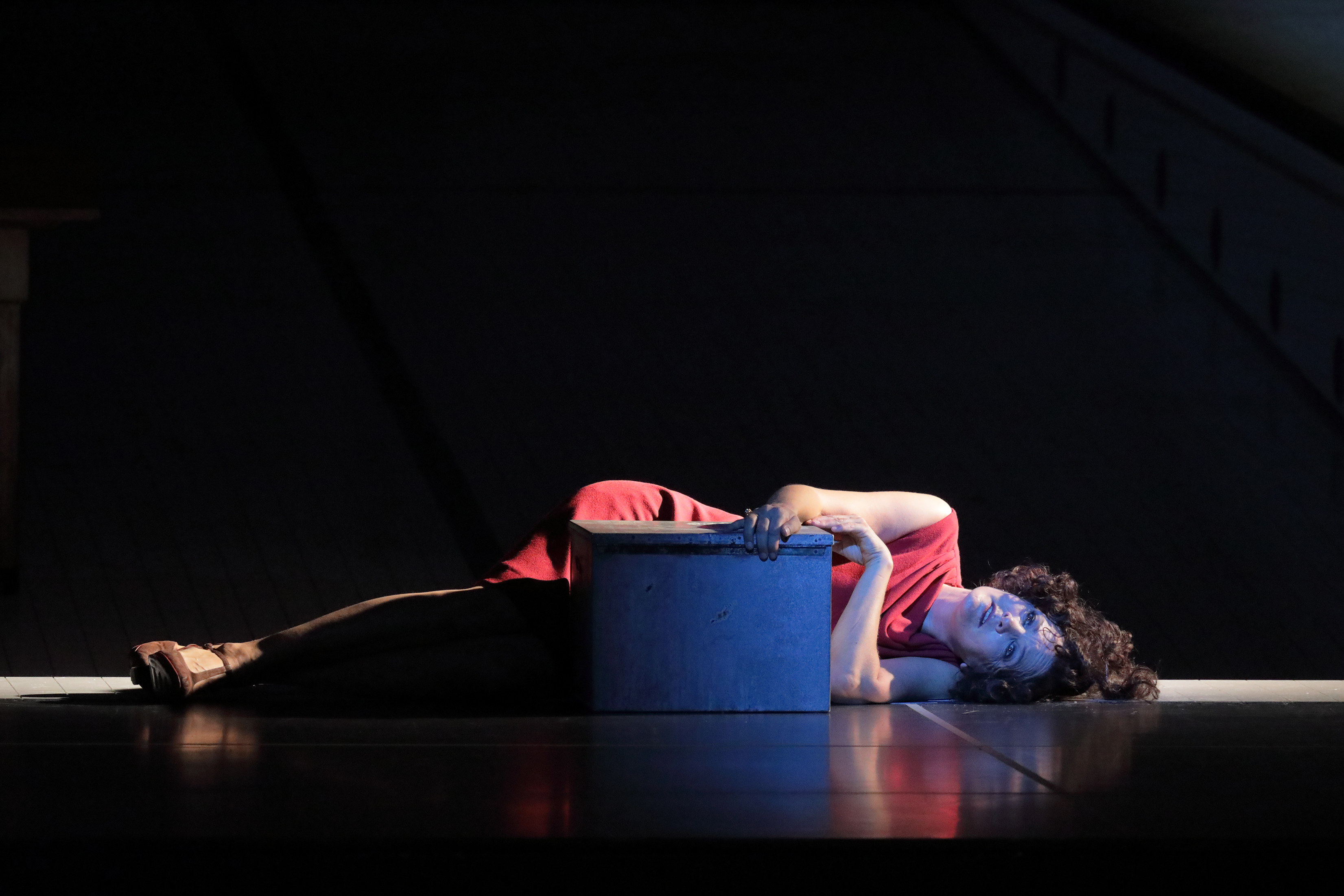
Salome, Bayerische Staatsoper. Production: Krzysztof Warlikowski. (Photo: © Wilfried Hösl)
What inspired the Dimensionen trilogy project?
Out of the many things that get recorded, like Winterreise, which is recorded so often, it was important to do something else. I wanted to connect to the human being and to human problems — the joys, the sorrows — and to have a closer look at what we are, and who we are and where we’re going. I was so surprised to discover how many things are written and what treasures they are. It was so inspiring to mix it all: the things we know, the things not so known. They are connected; they’re not so far away. There are some hidden treasures in the repertoire of lied.
It’s been written that you have “a weakness for the metaphysical.” Do you think that’s true?
I think so, yes.
How does that inform what you do onstage and in recordings?
Let me call it the “strength” of the metaphysical and not the “weakness”! When you are on the opera stage and you slip into character, the interesting thing about that process coming to understand this person’s psychology; for example, with Salome, how does this girl come to want a head on a silver platter? How does this happen? Or with Medea, how can this happen that she’s ready to kill her children? I love to explore these things. How can people come to want something like that? It’s a dark part of us, a disappointed side of us. We are all longing for appreciation and when you don’t get it over a certain time you get depression or you become a criminal, and it’s so interesting to explore these ideas. In lied of course you don’t have that to the same extent; you can follow the character in the story or the person who has a certain emotion and go with your authentic feeling into the song.
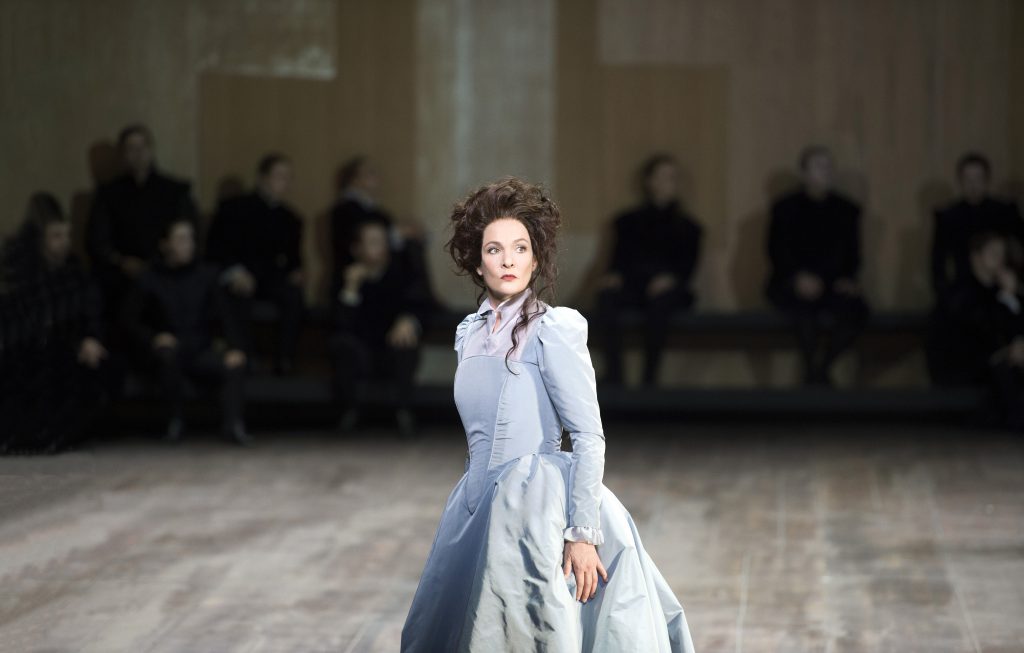
As Maria Stuarda at Theater an der Wien in 2018. Production: Christoph Loy. (Photo: Monika Rittershaus)
Something that’s always struck me about your artistry is this total authenticity in whatever capacity you happen to be performing in.
Let’s put it like this: when I started off doing this, it was, I think, just for the pure, unguilty pleasure of doing music. The older you get and the more mature you are, the more you think about things. So it’s a mixture of a certain natural approach I have, and a joy of music, and variety of music. You melt into something, and for me that’s a very authentic process. How can I put it? I can’t fake myself. I can’t betray myself. I have to present 100% of what and who I am.
How does that sense of self relate to your dance training?
The dancing thing helps a lot for staying very flexible and agile in this profession, not only body-wise but also, I think when you move and you dance, there’s a spirit connected to this. It keeps the brain and the whole attitude very flexible.
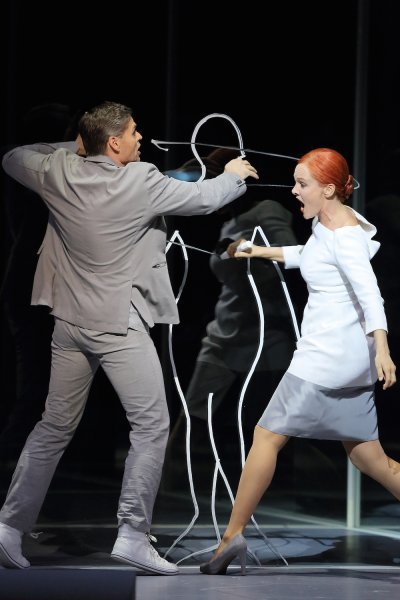
In Berg’s Lulu at Bayerische Staatsoper in 2015. Production: Dmitri Tcherniakov. (Photo: W. Hösl)
That flexibility is very noticeable onstage; how much does it extend to your work with conductors like Kirill Petrenko and René Jacobs?
I think chemistry has to be present from the beginning. You realize there’s a common goal in music; it’s very important. Sometimes you don’t have that, and it’s more compromising during the period you work together, but with René, for example, he’s very unique – a very complex, sensitive person. (Chemistry) is something you have to find — you have to resonate with that, and when you find the common energy then, you are on a very good track for the work together. But again, it’s always surprising how things happen. You meet people you’ve never seen before and you feel like you’ve known them a long time, especially in music.
Does that apply to directors as well, that sense of familiarity?
Maybe it’s even more so with directors, because when you do opera, you have a relationship over six weeks together — you see each other every day for six hours and you deal with very intimate psychological things, when you try to form a character. The conductor very often comes in late —not with Rene or Kirill, and maybe that’s the reason why we get along: they’re there from the beginning. But generally then you build up everything. With a director, you go into the point, to the very centre of everything, and this is maybe an even stronger connection —for this reason sometimes you have beautiful relationships, really inspiring exchanges, or it can happen, if you don’t understand each other, you will have a distance, and you can do your work professionally but it will never have this very strong pull.

As Medea in Aribert Reimann’s Medea (world premiere), Wiener Staatsoper, 2010. Production: Marco Arturo Marelli. (Photo: Axel Zeininger)
How does that relate to premiering a new work?
A world premiere is interesting because you are the one that kind of excavates the music really — you bring it to life. There’s no one who’s done it before, so you can’t listen to anybody. You have to be the one to create it, which is very exciting. And what is of course amazing and never happens otherwise, is that you can talk to the composer and discuss what do they mean in places, how do the want it? And maybe if there are difficult things you can ask for a change or adjustment. That is something very special, to have a person like Henze or Reimann to speak with, face to face, to talk about music — that is very touching.
You have a real dedication to lieder; how does this intimacy with stage artists relate to accompanists?
It’s very important that you have a person at your side that has the same musical approach. With lieder, you know, it’s very often the case of, ‘Here’s the singer and the guy who accompanies’ and it sounds like a 70% to 30% or 80% to 20% relationship, but for me it’s an equal force. To make music work, you must meet somebody that you really trust, that you understand as a human being also, that you have an easy exchange and also fascination with, about how they play the music. I think when a pianist plays in a way that I love, it opens a door inside me; then the music can go through that. That’s the closest work one can have.
That sounds like a rather metaphysical experience.
Yes, it is. The two pianists I have within the trilogy, they’re very different — Stephan Mattias (Lademann), who did the first (Welt) and the last (Inner Welt), is a very sensitive and fine pianist, and he is very, I think, into it with the knowledge of music. Camillo Radicke, who did the other album (Anderswelt), is a very sensitive, and I would say, even ethereal person, who comes more from the emotional side, in his approach to the music. There’s no question he’d play on Anderswelt, because (that album) for me has more crazy ungraspable little things, which I saw with Camillo immediately. And Mattias is more for the concrete and fine work in terms of musical approach.
Does your understanding of the work evolve through performance?
Yes, it moves on. Usually it’s the case that you have a theme, and then you perform, and then in the later stage, you record. With this, it was the other way around: we created an idea, we recorded it, then we performed it. That was a bit more difficult for the recordings, because you have no experience with the songs really, but, when the baby is born, it’s then a great process that can unfold, because every time you perform it, it grows a bit more, and you find new things. I think if I recorded it again now after three years, Welt, it would have some different tempi, some different moments of pianissimo. It moves on.
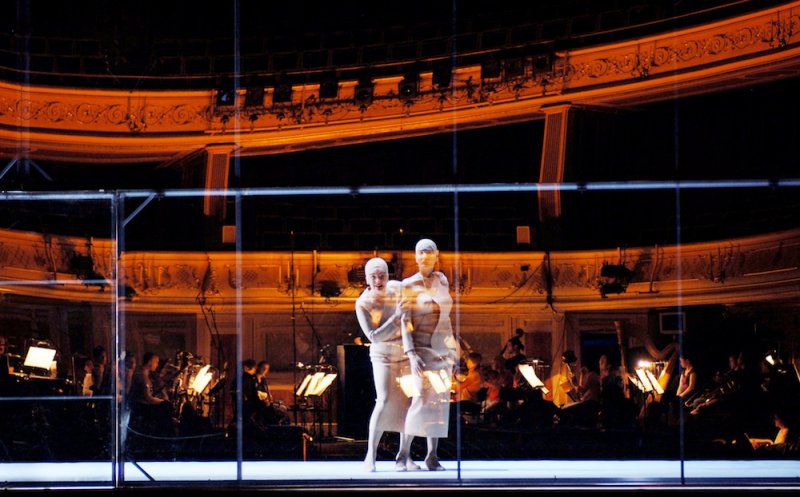
Maria Riccarda Wesseling as Phaedra and Marlis Petersen as Aphrodite within Ensemble Modern in reflection, in Henze’s Phaedra (world premiere) at Staatsoper Berlin in 2007. Production: Peter Mussbach. (Photo: Ruth Walz)
And I would imagine it’s influenced by what you’re doing on the opera stage as well…
Yes, for sure.
… because it seems like such organic material can lend itself to a certain theatricality.
Can you describe that?
Theatrical in the visceral sense — there’s a lot of strong imagery on your trilogy, not just with the words but the way you phrase things, the way you use your voice in terms of color and dynamics.
So does it create inner pictures for you?
Very much.
That’s fantastic — that’s great! That’s the best that can happen. The inner world is something we only know to a certain extent. The older we get the more we open doors. We have met our moments in our lives and understand them better and better, but some things we will never understand. When you look at the scientists who say we are only using 10% of our brain capacity, well, what does the other 90% do? I think it’s somewhere ungraspable — but becomes graspable through unconscious and subconscious worlds, and this is why I like you saying you have pictures mentally when you hear it. It means the music triggers your own inner world, and that’s the best compliment.
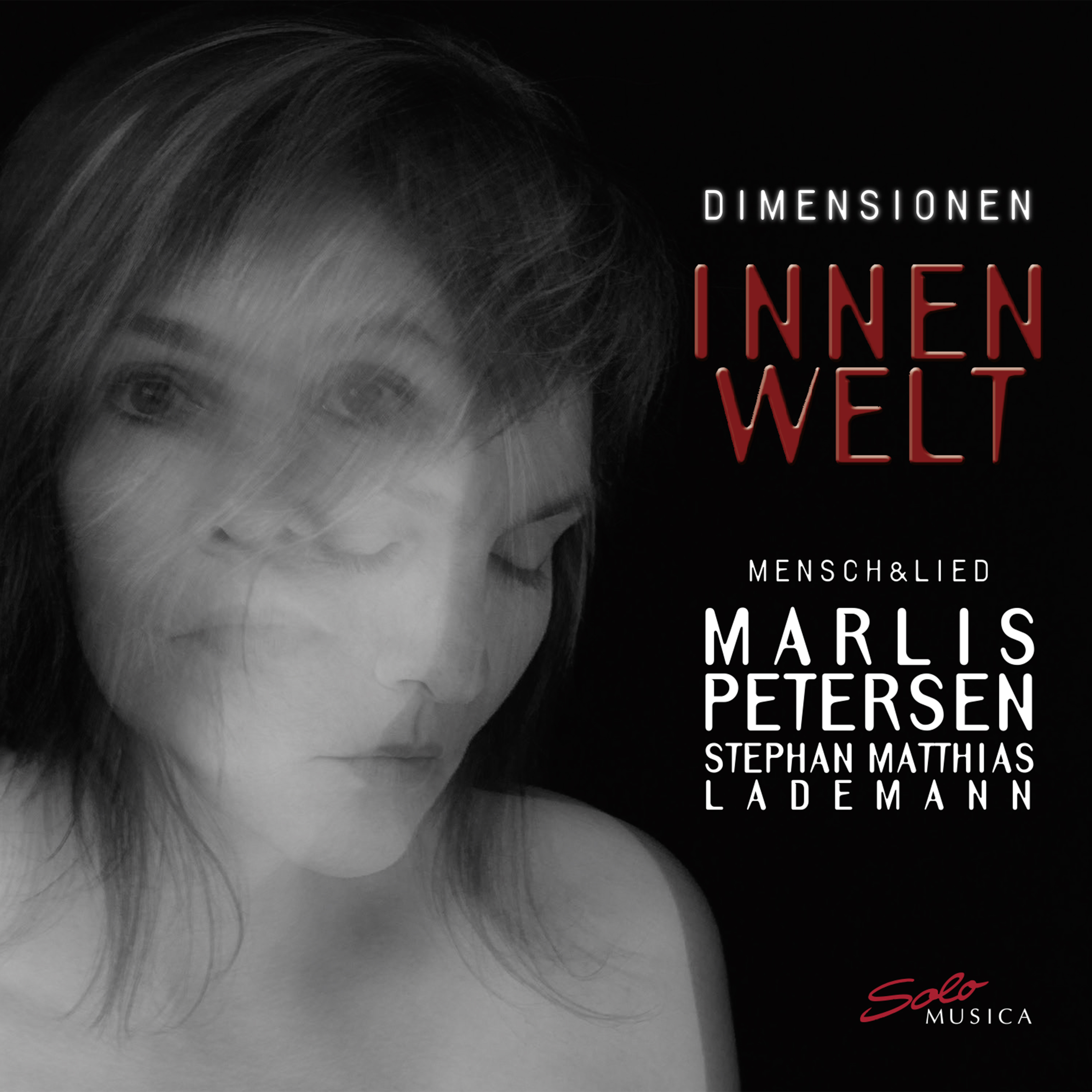
via Solo Musica
It feels like a journey in which sensuality plays a very important role.
My intent was to take listeners on a journey, to go through dreams and feelings we have inside, things like anger or despair. And the French part was something where I thought, “This is a very unique color that points to the love emotions.” There’s an aspect of… this is something that we all go through, something eternal, some heaven, or some kind of redemption. This is a big topic we all have in our core. And for our world, with all the busy schedules and the crazy things that happen, it’s so important for each of us to have these moments of intimacy, and as you said, sensuality. For me it was important to do this trilogy for my inner growth; it was such a lesson.
How so?
There is a technical aspect to collecting songs, to searching; you never know, really, where the journey will go. On the first album it happened that by sorting the songs; the chapters came out on their own. I didn’t plan any chapter, I just suddenly found out, “Oh! This goes together with this one!” and “Oh, this group makes another topic!” — it was a direction, a gift given to me, and it was so beautiful, this idea of chapters, I wanted to keep it for The Other World and The Inner World too. Then you have to think, how do I do it this time? But, when you go into something with your full heart, there are always gifts coming in, surprises from heaven, and suddenly you have these discoveries, and you feel you’re on the right track. And this feeling of being on the right track, and doing something essential for yourself and the world, is so rewarding.
It’s often a question of being open to that happening. Sometimes people don’t open doors but build more walls which become fortified with age.
i think it’s very important that we keep ourselves open to wonder. I have many friends who are musicians, and when I talk to them about this, they are very open to trying new directions and to listening and getting lost in the journey — but the thing is, who in our age has the time to sit with a glass of wine and just listen to the album, and look at the booklet and get lost in the little trip we’re offering? If you can find the time, yes, it might make you rich in a way that you can understand something more. This was my aim, really, but maybe it’s a big aim; it needs time for people to be ready for it.
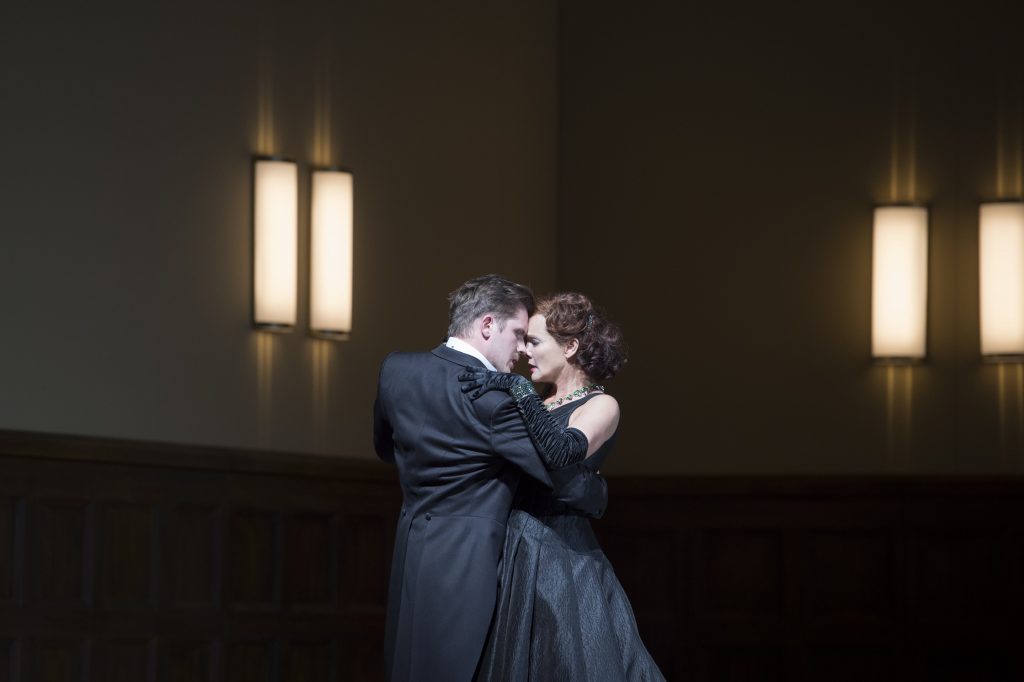
With baritone Iurii Samoilov in Lehar’s Die Lustige Witwe at Oper Frankfurt, 2018. Production: Claus Guth. (Photo: Monika Rittershaus)
Sometimes artists are far ahead of ideas of their time.
Oh yes, and the whole business today, it has to move fast, you have to be good, you have to bring your very best quality all the time, the business is rotating very quickly in every way. So these albums are there to tell us not to hurry, to take our time. Give time for everything you want to reach; if something’s coming and you have to move quickly, more so than you can, then maybe it’s not the right time to move. Give yourself the time you need; that thing will find you.

